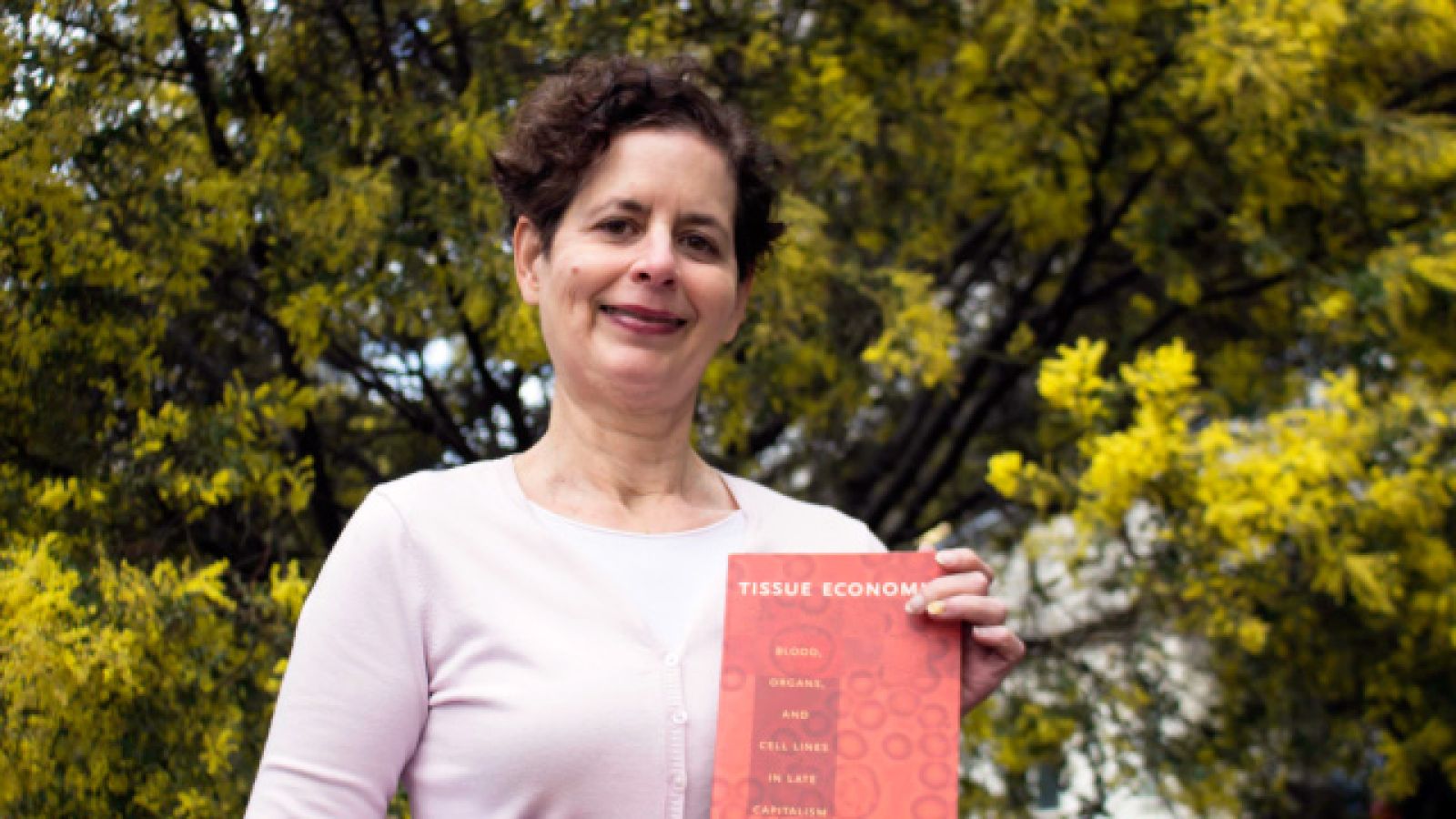Chinese university to host conference on ANU scholar’s book about organ donation

Professor Catherine Waldby is thrilled her Tissue Economies book has inspired an international conference in China. Image: Paris Lord/ANU
One of the foremost universities in China will in September host a global conference exploring ideas raised in a book by a social scientist at The Australian National University (ANU).
Professor Catherine Waldby, Director of the ANU Research School of Social Sciences, says she is honoured that the East Asia Tissues Economy workshop will explore in detail various topics from her co-authored book, Tissue Economies
“I couldn’t be more pleased,” Professor Waldby says of the 6-8 September conference, funded by Chinese and Danish organisations and hosted at Tsinghua University.
“The event is a testament to profile that the book, and my subsequent work, has in the field.”
Professor Waldby says that the term ‘tissue economy’ describes elements that are specific to a tissue, be it blood, an organ, a stem cell or other material.
“Different tissues have different biological qualities that condition how you can circulate them, whether you can bank them, whether you can keep them, whether they’re very fragile or robust,” she explains.
“I look at the way those material properties interact with social and technical systems for their distribution.”
Her seminal 2006 book, co-written with Robert Mitchell, focused on American and British examples. But it has been cited more than 700 times worldwide and has inspired a number of grants, workshops and regional studies including a special issue on tissue economies in the journal Contemporary South Asia and an entry in the Wiley-Blackwell Encyclopedia of Health, Illness, Behavior, and Society.
Professor Waldby has been working on the implications of tissue donation since the late 1990s. She will give the conference’s keynote opening address based on her forthcoming book, The Oocyte Economy: the changing meanings of human eggs in fertility, assisted reproduction and stem cell research.
“Oocyte cells transmit genetic inheritance from mother to child,” she says.
“I will ask what it means to live with this cell lineage. How does its particular history, trajectory and affordances intersect with the biological and social life of women?”
Other conference speakers include senior medical practitioners, academics from around the world, and senior officials from organisations like the Chinese Centre for Disease Control and Prevention, and Red Cross Society of China.
They will cover legal, anthropological and historical perspectives of tissue economies and concrete case studies, as well as research methods and ethical considerations.
Professor Waldby says she hopes that there will be flow-on effects from the conference and the current investment the Chinese are pouring into biomedical innovation.
“Chinese bioethicists and regulators are very keen to internationalise and have good quality control, to benchmark themselves and be outward-facing,” she says.
“This kind of event opens up the possibility for collaboration between Chinese and non-Chinese researchers, but also between social scientists and clinicians and biomedical scientists more generally, which has been my agenda since I [began] at ANU [in September 2015].
“[This kind of collaboration] is happening at ANU, and it would be terrific to see this emerge [from Beijing]. It may not develop straight away, but what often happens is you plant some seeds, make some contacts and then things happen from there.”